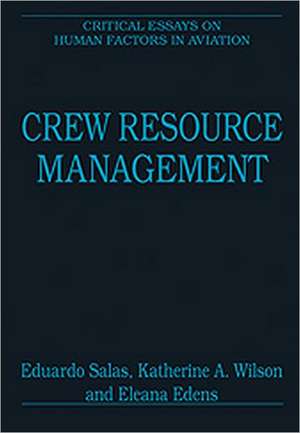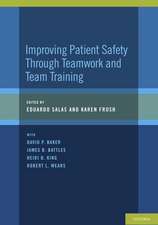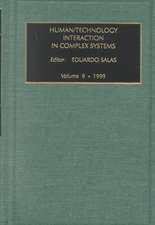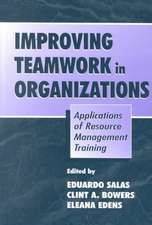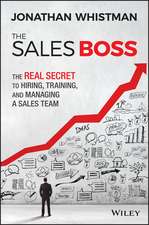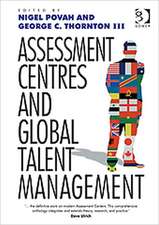Crew Resource Management: Critical Essays: Critical Essays on Human Factors in Aviation
Editat de Eduardo Salas, Eleana Edens, Katherine A. Wilsonen Limba Engleză Hardback – 15 mai 2009
Preț: 2250.06 lei
Preț vechi: 3219.17 lei
-30% Nou
Puncte Express: 3375
Preț estimativ în valută:
430.61€ • 447.90$ • 355.49£
430.61€ • 447.90$ • 355.49£
Carte tipărită la comandă
Livrare economică 14-28 aprilie
Preluare comenzi: 021 569.72.76
Specificații
ISBN-13: 9780754628293
ISBN-10: 0754628299
Pagini: 448
Dimensiuni: 170 x 244 x 35 mm
Greutate: 1.04 kg
Ediția:1
Editura: CRC Press
Colecția Routledge
Seria Critical Essays on Human Factors in Aviation
Locul publicării:United Kingdom
ISBN-10: 0754628299
Pagini: 448
Dimensiuni: 170 x 244 x 35 mm
Greutate: 1.04 kg
Ediția:1
Editura: CRC Press
Colecția Routledge
Seria Critical Essays on Human Factors in Aviation
Locul publicării:United Kingdom
Cuprins
Contents: Introduction; Part I History of Crew Resource Management: The Naval Safety Center's aircrew coordination training program, Robert A. Alkov; 18 years of the CRM wars: a report from headquarters, Daniel E. Maurino; The evolution of crew resource management training in commercial aviation, Robert L. Helmreich, Ashleigh C. Merritt and John A. Wilhelm; Crew resource management: a time for reflection, Daniel E. Maurino. Part II Theoretical Developments: Dyads and triads at 35,000 feet, H. Clayton Foushee; Why crew resource management? Empirical and theoretical bases of human factors in aviation, Robert L. Helmreich and H. Clayton Foushee; Training and research for teamwork in the military aircrew, Carolyn Prince and Eduardo Salas. Part III Methodological Tools and Developments: Cockpit management attitudes. Human factors, Robert L. Helmreich; LOFT: full mission simulation as crew resource management training, Roy E. Butler; A methodology for enhancing crew resource management training, Eduardo Salas, Carolyn Prince, Clint A. Bowers, Renée Stout, Randall L. Oser, and Janis A. Cannon-Bowers; System safety and threat and error management: the line operations safety audit (LOSA), Robert L. Helmreich, James R. Klinect and John A. Wilhelm; Methods used to evaluate the effectiveness of flightcrew CRM training in the UK aviation industry, Paul O'Connor, Rhona Flin, Georgina Fletcher and Peter Hemsley; Development of the NOTECHS (non-technical skills) system for assessing pilot's CRM skills, Rhona Flin, Lynn Martin, Klaus-Martin Goeters, Hans-Jürgen Hormann, René Amalberti, Claude Valot and Herman Nijhuis. Part IV Evaluation of CRM Training: Does CRM training improve teamwork skills in the cockpit? 2 evaluation studies, Eduardo Salas, Jennifer E. Fowlkes, Renée J. Stout, Dana M. Milanovich and Carolyn Prince; Team training in the skies: does crew resource management (CRM) training work?, Eduardo Salas, C. Shawn Burke, Clint A. Bowers and Katherine A. Wilson; Techniques used to evaluate crew resource management training: a literature review, Paul O'Connor, Rhona Flin and Georgina Fletcher; Does crew resource management training work? An update, extension, and some critical needs, Eduardo Salas, Katherine A. Wilson, C. Shawn Burke and Dennis C. Wightman. Part V Crew Resource Management: Beyond Aviation: Anesthesia crisis resource management training: teaching anethesiologists to handle critical incidents, Steven K. Howard, David M. Gaba, Kevin J. Fish, George Yang and Frank H. Sarnquist; Simulation-based training in anaesthesia crisis resource management (ACRM): a decade of experience, David M. Gaba, Steven K. Howard, Kevin J. Fish, Brian E. Smith and Yasser A. Sowb; 4 generations of maintenance resource management programs in the United States: an analysis of the past, present, and future, James C. Taylor and Manoj S. Patankar; Crew resource management training for offshore oil production teams, Paul O'Connor and Rhona Flin; Index.
Notă biografică
Eduardo Salas University of Central Florida, USA, Katherine A. Wilson, University of Central Florida, USA and Eleana Edens, Federal Aviation Administration, USA
Recenzii
'...this collection of papers offers some interesting material on the role that CRM and its derivatives have played in aviation and other high-risk industries...' The Aerospace Professional
Descriere
Crew Resource Management (CRM) training was first introduced in the late 1970s as a means of combating an increased number of accidents in which poor teamwork in the cockpit was a significant contributing factor. Since then, CRM training has expanded beyond the cockpit, for example to cabin crews and maintenance crews, and has also developed and acquired a host of methodologies and tools which have allowed the community to better study and measure its effect on team performance and ultimately safety. This volume brings together key articles which depict these developments in CRM research and training and provides an invaluable forum for researchers and practitioners alike.
